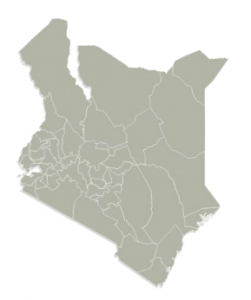| CATEGORY: | Research |
| CSA PROJECT 1: | Evidence for Resilient Agriculture (ERA) |
| SCALE: | County |
| LOCATION: | Nairobi, Kiambu, Machakos, Makueni, Kajiado |
| PERIOD OF THE PROJECT: | 2013 to Date |
| GRANT SIZE OF THE PROJECT: | USD 70,000 per year |
| CSA PROJECT 2: | Up scaling county climate smart agriculture planning |
| SCALE: | County |
| PERIOD OF THE PROJECT: | 2020 January-June 2020 |
| GRANT SIZE OF THE PROJECT: | USD 40,000 |
ICRAF

Summary of Actions
World Agroforestry (ICRAF) engages in co-development and dissemination of agroforestry based knowledge and practices for adoption by smallholder farmers in order to increase agricultural productivity and contribute to climate change mitigation while ensuring food security and environmental sustainability.
The organization employs capacity building and advocacy approaches involving creation of a toolkit encompassing farm and landscape level climate-smart agriculture (CSA) practices. The organization specializes in initiatives such as Drylands Development Programme (DryDev); Accelerating Adoption of Agroforestry in Western Kenya (Triple As); Food Africa II; Probabilistic Causal Models for Nutrition outcomes of Agricultural Actions; and Fruiting Africa: Tree Crops Development in Africa to benefit the poor, in Kenya among other projects.
Context
Smallholder agriculture practices in Kenya remain largely traditional and predominantly rainfed. This makes smallholder farmers vulnerable to climate risks. Despite the numerous research and scientific evidence generated on ways to build resilient agriculture, the increasing frequency and intensity of climate risks and hazards continue worsening their livelihoods. There is therefore need to transform the current traditional agriculture into a form that integrates climate risk management interventions. This transformation requires inter alia policies, finances and enhanced capacity as well as accurate data to inform accurate site specific solutions that will deliver improved agricultural productivity, mitigate greenhouse gas emissions and build resilience in the agricultural production systems.
Activities implemented by ICRAF are aimed at increasing productivity, enhancing resilience and mitigating greenhouse gas emissions. Small-scale farmers are most vulnerable to climate risks. Their agricultural practices remain largely traditional and rainfed dependent jeorpardizing the resilience. Increased frequency and magnitude of climate risks and hazards worsens their livelihoods regarless of the numerous research and scientific evidence on ways to improve agriculture. To bridge the gap from traditional to transformative agriculture we require inter alia policies, finances and enhanced capacity. All the requirements for transformative agriculture require accurate data to inform them better delivery. We have developed a research tool and web portal by combining all scientific evidence on agriculture to produce accurate and site specific solutions to improve agricultural productivity, increase resilience and to mitigate greenhouse gas emissions.
Objective
Project 1: The overall objective of this project is to generate scientific evidence to inform climate-proofing of agriculture; policy formulation; decision-making and implementation of Climate Smart Agriculture technologies and practices for resilience building.
Project 2: The long-term objective of this project is to build the capacity of county governments in Kenya in integrating climate-smart agriculture technologies and practices into their agricultural sector development plans for resilience building.
Key Interventions
| FARM LEVEL | TARGET (NO OF FARMERS) | INDICATORS MONITORED |
| Agroforestry | Number of smallholder farmers integrating agroforestry technologies and practices | |
| On farm water and soil management |
|
|
| Capacity building |
|
|
| BEYOND FARM LEVEL | TARGET BENEFICIARIES | INDICATORS MONITORED |
| Policy and advocacy | Government Value chain actors (agro-input dealers, transporters, processors) |
|
| Capacity building on CSA |
County Agriculture officers, climate services providers, County planners, etc |
development plans |
| Governance and institutional strengthening |
|
Participation In Key Climate & Agriculture Networks
ICRAF is a member of the following networks: Consultative Group for International Agricultural Research (CGIAR); Kenya Climate Smart Agriculture Multi-Stakeholder Platform (MSP); Africa Climate Smart Agriculture Alliance (ACSAA) ; Global CSA Alliance (GACSA).
Involvement in CSA
Relevance of CSA MSP to Work
- Policy formulation
- Knowledge dissemination
- Technology transfer
- Research
- Communication
- Networking
- Learning and exchange
- Influence policy environment
- Reporting and showcasing
- Information about CSA
Recommendation On Ways To Support MSP
- Dissemination of climate smart agriculture knowledge and technologies
- Developing capacities of key stakeholders involved in climate smart agriculture implementation
- Mobilizing stakeholders and facilitating dialogue on climate smart agriculture issues among them
LESSONS LEARNED AND CHALLENGES IN IMPLEMENTATION OF CSA PROJECT
Successful implemenattion of agroforestry interventions requires political goodwill especially in ensuring developed policies embrace agroforestry techologies. A clear communication channel with the counties can also improve transparency and increase the willingness of the counties to be fully involved in the implementation of CSA. Funding of climate actions still remains to be a major impedement to the
implementation of CSA technologies and practices
RELEVANT LINKS & REFERENCES
http://www.worldagroforestry.org/country/Kenya/projects
https://era.ccafs.cgiar.org/
ORGANISATION INFORMATION AND CONTACT ADRESS INCASE OF FOLLOW UP
Name: Lamanna Christine
Email address: C.Lamanna@cgiar.org
Organisational Physical address: United Nations Avenue, Nairobi, Kenya
Organisational Website: http://www.worldagroforestry.org/country/Kenya/
